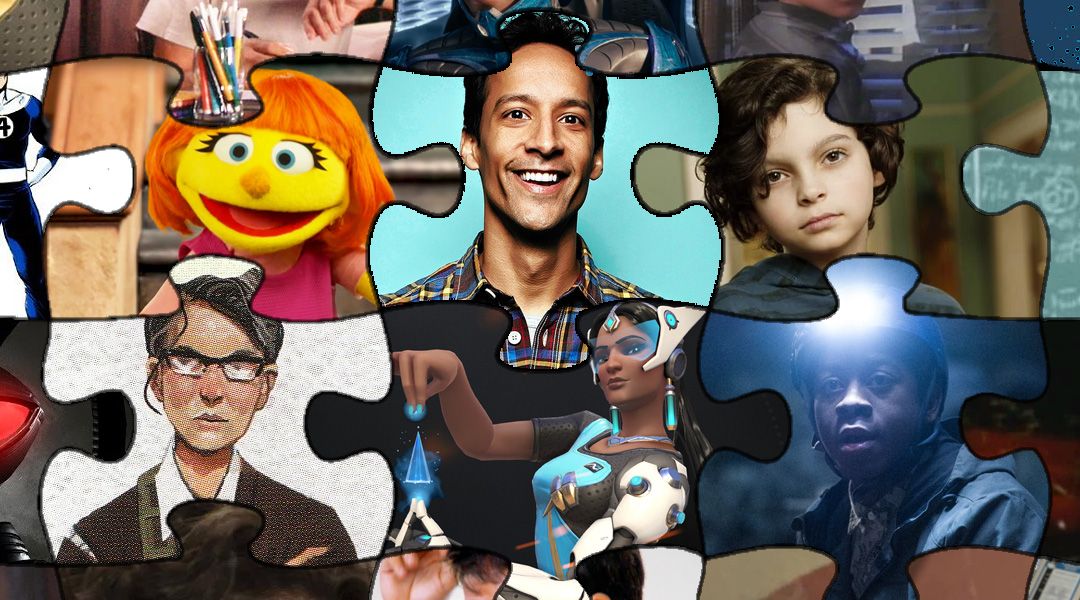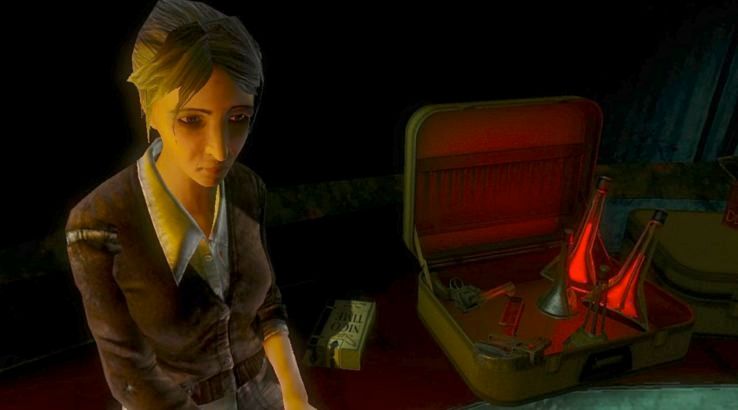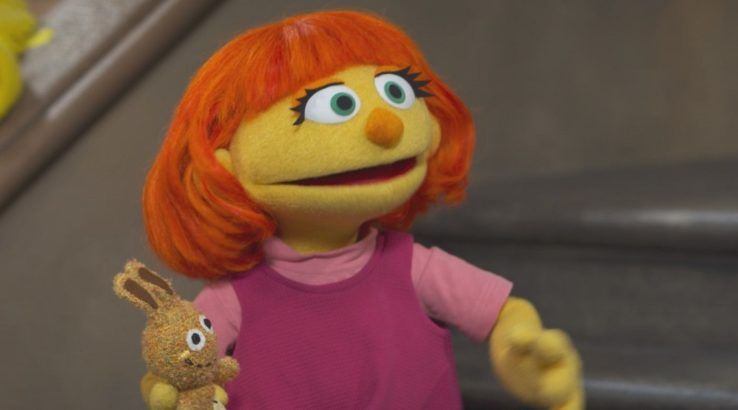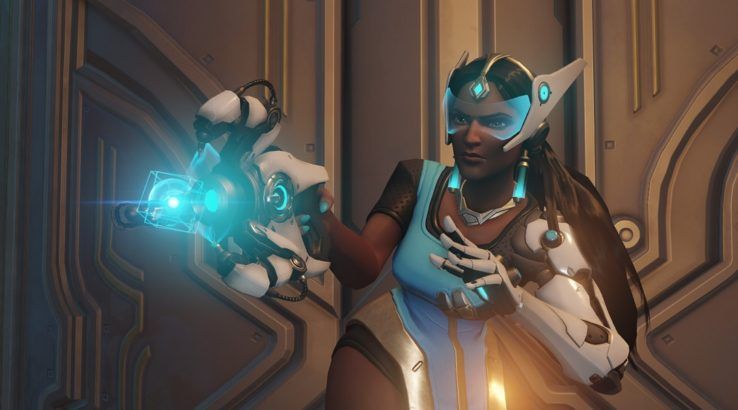Over 25 million people in the world have been diagnosed with some form of autism. As a developmental disorder, autism exists on a spectrum, ranging from individuals who are fairly high functioning to those who may be more severe. Despite autism being one of the more common developmental disorders, there haven't been many fictional characters in video games, movies, comic books, or television who accurately display traits of the disorder.
In recognition of Autism Awareness Day, we decided to collect 10 fictional characters from video games, movies, comic books, and television who are either accurate representations of someone with autism, or whose stories depict real challenges that people with autism deal with on a regular basis. However, it's worth pointing out that while there may be some consistent traits that we see from people with autism, everyone with autism is a unique individual and are not defined by the disorder.
For this list, we decided to stick with characters who are confirmed to have autism in whatever media they're from, or who were later confirmed to have the disorder by their creators.
10 Abed Nadir (Community)
While Abed Nadir from Community isn't formally diagnosed with autism, it's a major character trait for him throughout the show. Abed is high-functioning, but displays characteristics of Asperger syndrome, evident by his struggles with social interaction and his extreme focus on pop culture. Abed actually uses his love of pop culture, more specifically television, to help him better understand how he should react during social interactions or how other people are feeling when certain events occur. Abed's mother abandoned his family before the events of the series, apparently due to her frustrations with his behavior, which is a reflection of something that unfortunately happens to people with autism in the real world as well.
9 Black Manta
One of Black Manta's origin stories reveals that he had a severe form of autism as a youth, and the medical professionals at the time struggled to understand it. In an attempt to "cure" autism as though it were a disease and not a disorder, Black Manta (then known by his real name of David Hyde) was sent to Arkham Asylum, a place typically reserved for criminally insane supervillains like The Joker. The scientists at Arkham Asylum conducted experiments on young Hyde, and managed to eliminate the symptoms of his disorder. However, the experiments also turned him into the murderer that would go on to become Aquaman's archnemesis.
The reason why Black Manta is on this list isn't necessarily because he himself is an accurate representation of someone living with autism. It's because the way that people in his story reacted to him is sometimes an accurate representation of how people view autism. Decades ago, it wasn't uncommon for people with severe cases of autism to be sent to mental institutions or insane asylums, due to a lack of understanding of the disorder. Furthermore, there are organizations that believe autism is something that can be "cured," which is a potentially problematic viewpoint for those living with the disorder.
8 Billy Cranston (Power Rangers)
In the 2017 Power Rangers reboot film, we are introduced to a new version of Billy Cranston, the original blue Power Ranger. Billy as he appears in the reboot film is a high-functioning individual with autism, which he explains to the red Ranger Jason early in the film. As part of his disorder, Billy finds social interactions difficult, particularly when it comes to understanding peoples' emotions or when they are being sarcastic.
A common misconception is that people with autism are unintelligent, but as Billy shows, that is not the case. In fact, Billy is shown to have a great memory and impressive intellect, especially in regards to technology. Billy's autism makes him a target for bullies at his school, which is also something that is not uncommon for people living on the autism spectrum.
7 Dr. Tenenbaum (BioShock)
Like many people with autism, Dr. Brigid Tenenbaum from BioShock was diagnosed with the developmental disorder at an early age. Throughout the course of the BioShock series, Tenenbaum does not display many traits commonly associated with autism, but that in itself can be accurate representation of someone who has high-functioning autism. However, Tenenbaum's extreme dedication to her scientific pursuits, which helped her survive the Holocaust before the events of the original BioShock, could possibly be attributed to her disorder.
6 Julia (Sesame Street)
Whereas most of the characters listed so far have all been examples of high-functioning individuals with autism, the muppet Julia from Sesame Street is on the other end of the spectrum. Since Julia made her debut in the long-running educational TV series in 2017, she has displayed a variety of traits associated with people that have autism, such as being sensitive to loud noises, "stimming" (which includes behaviors like jumping in place and flapping her hands), and not looking at people when they are talking to her. Beyond just having Julia display various characteristics of the disorder, Sesame Street also depicts how she utilizes learned coping skills when she becomes upset, and how some people around her may be confused by her behavior.
5 Max (Mary & Max)
Max, from the 2009 Australian claymation film Mary and Max, is diagnosed with Asperger's syndrome about halfway through the film. Like was the case with Black Manta, Max's disorder is misunderstood by the medical professionals of the time, and he is sent to a mental institution. Max's doctor tells Max that there will one day be a "cure" for his disorder, and Max finds this offensive, saying that he doesn't feel disabled. Through the character Max, Mary and Max shows how someone with autism may also contend with other mental health issues, like depression and anxiety.
4 Max Braverman (Parenthood)
Raising a child with autism can be a unique challenge for any parent, as can be seen in the hit TV series Parenthood with the character Max Braverman. Over the course of the series, viewers can see how growing up is different for someone with autism, and how an autism diagnosis impacts more than just the individual with the disorder. Parenthood also offers a look at some of the specialized tools that someone with autism may need to access in order to learn social skills that come naturally for others.
3 Raymond "Ray" Babbitt (Rain Man)
Rain Man may be guilty of pushing some myths about people with autism, particularly the idea that they all have special, almost superhuman skills. However, there are genuinely some individuals with autism who do possess rather remarkable abilities, as is the case with Raymond "Ray" Babbitt. Ray is an autistic savant, who has incredible skills when it comes to math and counting.
Like some other people with autism, Ray has a rigid routine that will cause him severe anxiety if it's interrupted, he stims constantly, and he has a variety of repetitive behaviors. Ray's autism seems to frustrate his brother Charlie at the start of the film, but over time, Charlie becomes more understanding of his disorder.
2 Symmetra (Overwatch)
Symmetra from Overwatch was confirmed to have autism not long after the comic A Better World released. The comic, which was used to flesh out Symmetra's character, teased that Symmetra is on the autism spectrum, but stopped short of actually confirming this to be one of her traits. Game director Jeff Kaplan later confirmed Symmetra's autism in a letter to a fan, and it will be interesting to see if it will be further explored in future Overwatch comics and animated shorts.
1 Tommy Westphall (St. Elsewhere)
Tommy Westphall, from the television series St. Elsewhere, is an individual with autism who is nonverbal. In the series finale, Tommy's father, Donald Westphall, expresses frustration about Tommy's autism, including how his son doesn't talk or look at him. All Tommy wants to do is play with his snow globe, which just so happens to have a replica of the hospital where the bulk of the series takes place.
It's then heavily implied that the entire series took place in Tommy's imagination. And thanks to a number of crossovers St. Elsewhere had with other shows, it follows that a large portion of episodic television also only existed in Tommy's mind, resulting in the Tommy Westphall Universe theory. Tommy is not only a realistic portrayal of a nonverbal individual with autism, but if there is any truth to the Tommy Westphall Universe theory, he is arguably one of the most significant characters in all of television.







